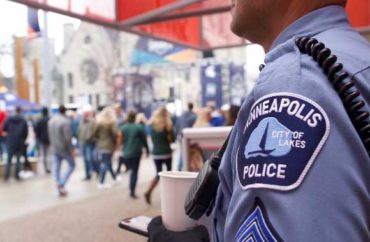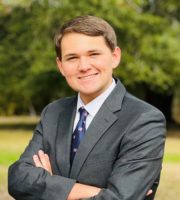
UPDATED
Project wants to end ‘policing as a one-size-fits-all answer’
Minneapolis is shelling out $1,000,000 to a New York University School of Law group to help it implement an “alternatives” to policing plan.
The Minneapolis City Council recently approved a partnership with NYU Law’s Reimagining Public Safety, a program of its Policing Project. The initiative wants to “incorporate non-police entities,” into public safety according to the organization.
It’s part of the city’s Safe and Thriving Communities plan.
The NYU group works with other cities, including Chicago and Denver, “to reimagine how government responds to community needs, ending policing as a one-size-fits-all answer to all problems and fostering real community health and safety,” according to its website.
The Safe and Thriving Communities report, adopted by the city council last summer, details preventative, responsive, and restorative programs the city should implement as alternatives to traditional policing. It includes the development of “individual response alternatives,” according to the report.
The College Fix reached out to the Policing Project to ask if the group had made any recommendations regarding policing “alternatives” to the city and how the plan would help reduce crime.
“We haven’t made any recommendations to the City of Minneapolis,” the Policing Project’s Director of Communications Joshua Manson told The Fix. “The City is bringing us on to begin implementation of the Safe and Thriving Communities report.”
“That report itself doesn’t include recommendations to reduce the size of the police force,” he said.
“The focus of our work is to find ways to incorporate non-police entities into the creation of public safety in order to give officers more time to engage with the community and focus on the investigation and deterrence of violent crime,” Manson said.
However, Manson did not specify the meaning of “non-police entities” and he did not answer any questions on how the proposal would lower crime rates in the city.
The Safe and Thriving Communities report recommended changes to Minneapolis’ public safety system include dispatching behavioral crisis response teams and mental health professionals to some 911 calls as opposed to police officers.
The Fix reached out to the Minneapolis City Council and the mayor’s office to ask if the city had implemented any of the report’s recommended changes. Additionally, The Fix inquired with the Minneapolis Police Department to ask if it supported the proposal and if it expected the size of its police force to be reduced as a result of the plan.
“The contract with NYU has not been executed. No deliverables have been provided,” Casper Hill, a media representative for the city, told The Fix via email on Wednesday.
Hill said there will not be a reduction in police officers under this proposal. “The City is actively recruiting new officers to reach the mandated level of 731 officers,” Hill said.
He said the new plan will help police officers.
“This plan will enable the City to utilize law enforcement resources and services where they are most needed and allows for a more tailored approach to incidents that have typically been responded to primarily or solely by sworn police officers,” Hill said.
“In other words, this comprehensive approach should make police officer’s jobs easier and simultaneously provide better outcomes for those impacted by community safety issues.”
Public safety expert says police must be at the center of crime reduction
A policy fellow at the Center of the American Experiment, a think tank based in Minnesota, told The Fix that public safety plans should be focused on enhancing the resources provided to officers, not reducing the reliance on police.
“These plans should include ‘enhancements’ to traditional law enforcement, not ‘alternatives’ to law enforcement,” David Zimmer, the Center of the American Experiment’s public safety policy fellow, told The Fix in an emailed statement. He served 33 years with the Hennepin County Sheriff’s Office. The county includes Minneapolis.
“The basis for any successful public safety proposal should be built upon a solid law enforcement-centric strategy,” Zimmer said.
“Violence interrupters, behavioral health crisis response teams, homeless outreach teams, restorative justice programs, etc – all need a foundation of law enforcement to build off of, and they need to operate in relation to the police, not separate from the police,” Zimmer said.
Zimmer said law enforcement officials’ support of additional response resources has been taken advantage of by those who see this as an opportunity to promote a reduction in policing.
He said:
Police leaders have long called for more investment in ‘2nd responder’ resources, taking those duties off the shoulders of already overburdened police officers. The difference is, today’s calls for ‘re-imagining’ public safety and policing, don’t view this as an opportunity to enhance policing, but instead view it as an opportunity to reduce the policing footprint and reduce police encounters, etc. That approach will fail, as it will not allow for a stable foundation at the base of these other programs.
Zimmer also said that the “demonization” of police in Minneapolis has largely caused the high crime rates in the city. He said that tough-on-crime initiatives and consistent prosecutions can reduce crime.
“Minneapolis leaders must value their police department and stop demonizing it and labeling it as the problem,” Zimmer said. “The current spike in crime since 2018 has been the result of a demonization of policing in the Twin Cities, and the calls to dismantle and defund policing,” he said.
The most successful crime reduction policies in the past two years “have been robust, high visibility, pro-active law enforcement followed by prosecutions by the US Attorney in Minnesota,” Zimmer said.
“These initiatives targeting, for example, carjackings and robberies, have had a significantly positive impact,” he said.
“The word quickly spreads among criminals, and the pay off from this strategy is significant,” he said.
Students at the University of Minnesota have seen the effects of increased policing as well. The nearby Dinkytown commercial district, where many students eat and socialize, saw a 38 percent crime drop after increased policing, as previously reported by The Fix.
Editor’s note: The article has been updated with comments from the city.
MORE: Defund police activists storm Northwestern football game
IMAGE: Minneapolis Police Department/Facebook





Please join the conversation about our stories on Facebook, Twitter, Instagram, Reddit, MeWe, Rumble, Gab, Minds and Gettr.